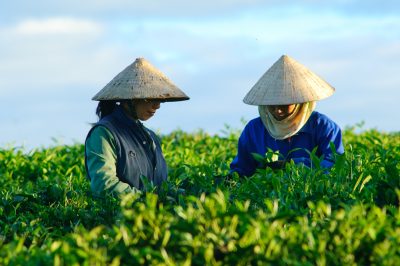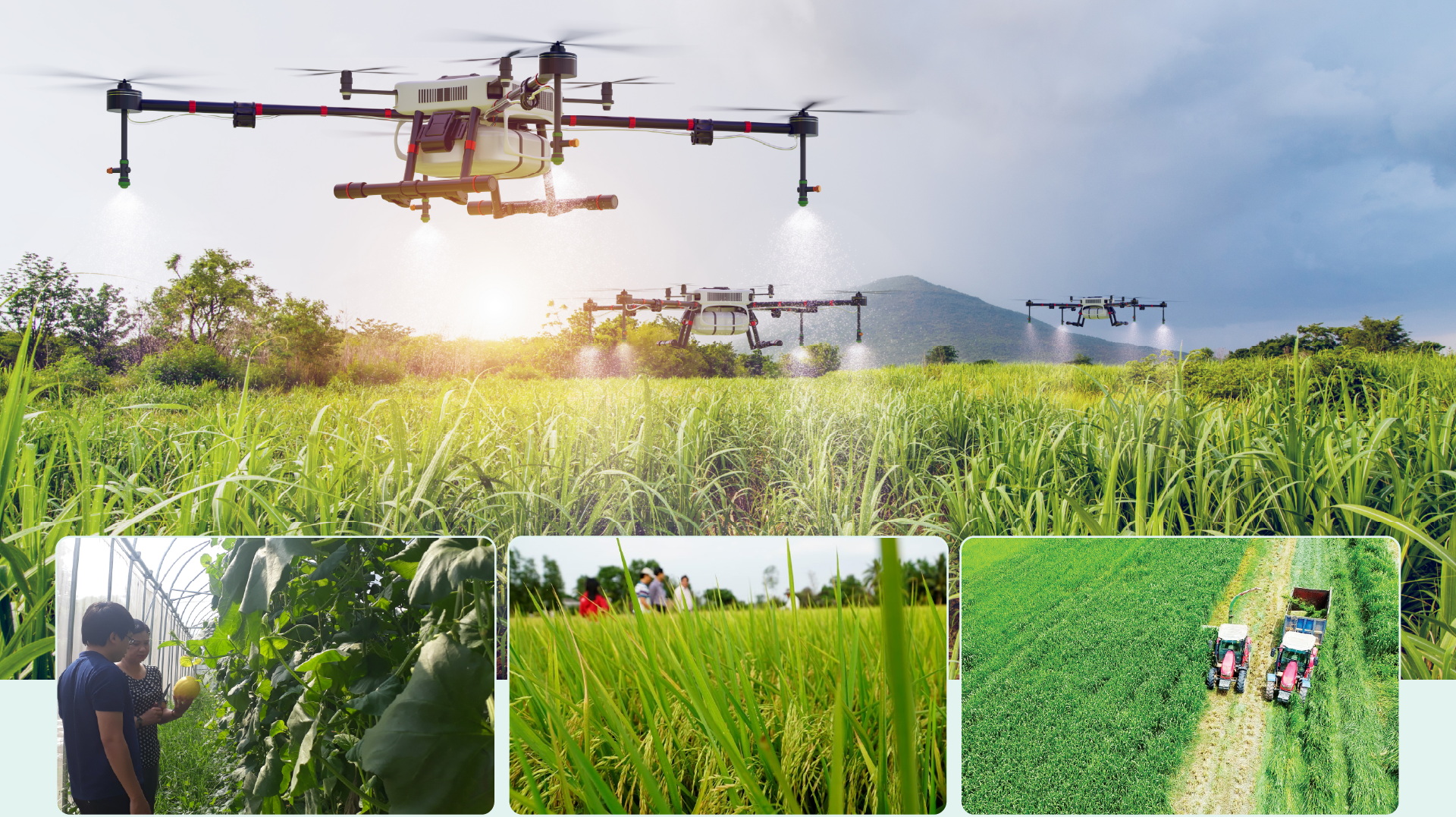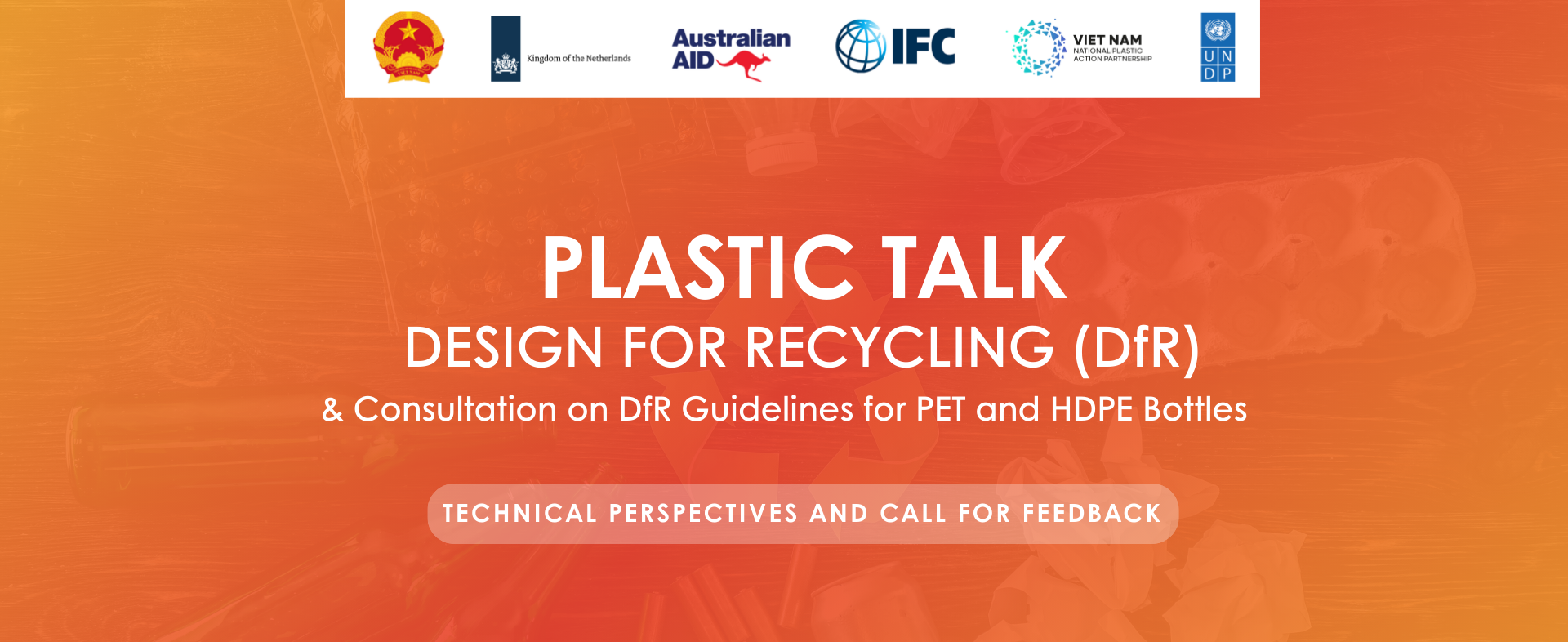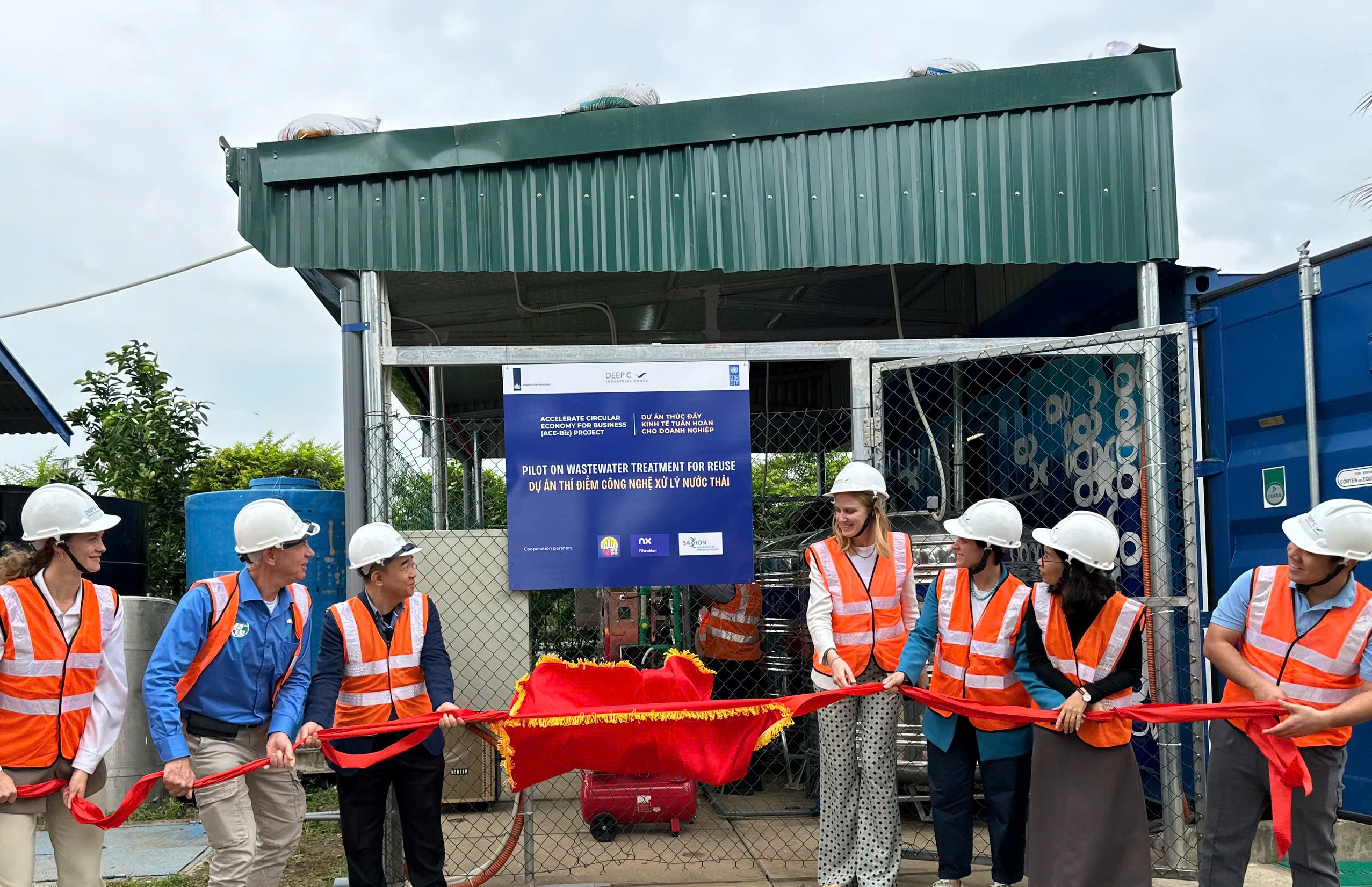Ho Chi Minh City, 14th September 2023 – The Ministry of Industry and Trade, in collaboration with the United Nations Development Programme (UNDP), convened a workshop titled “Ecological Design for Promoting Sustainable Production, Consumption, and Circular Economy in Vietnam” with an aim to introducing, exchanging ideas, and discussing solutions aimed at assisting businesses in aligning with practical eco-design principles. These principles play a pivotal role in promoting sustainable consumption and production, and the circular economy.
The workshop witnessed active participation from various stakeholders, including policymakers, departmental representatives (from provinces and cities such as Ho Chi Minh City, Da Nang, Binh Duong, Dong Nai), industry associations, corporations, and experts, scientists and researchers from research institutes, universities, and both domestic and international organisations with a keen interest in sustainable development also attended.
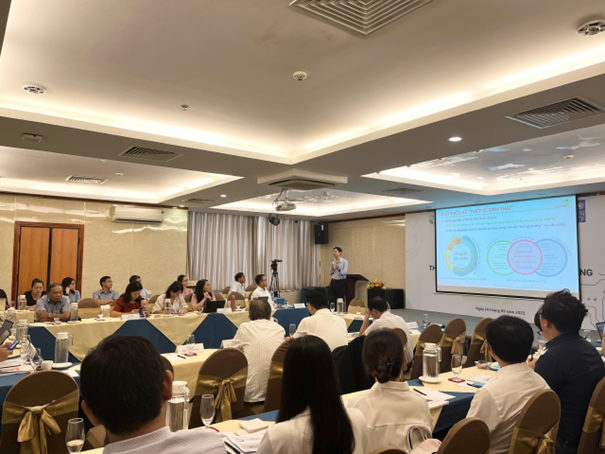
Panoramic view of the workshop
Eco-design represents a proactive approach to product and service development. It aims to minimise environmental impact throughout a product’s lifecycle, thereby creating products and services with the least possible environmental footprint. Eco-design has the potential to reduce a product’s environmental impact by up to 80%.
Given the global shift towards green and sustainable products, countries worldwide are increasingly focusing on environmentally-friendly products and imposing stringent environmental and energy-saving regulations. International experience has shown that developing and implementing policy tools, fostering capacity-building, and applying eco-design in strategic sectors are not only necessary but also highly meaningful.
During his address at the workshop, Mr. Trinh Quoc Vu, Deputy Director of the Department of Energy Saving and Sustainable Development, highlighted the importance of energy conservation within the National Action Programme on Sustainable Production and Consumption (Decision Decree 889/QD-TTg). This programme includes tasks such as policy development, the adoption of sustainable models, and the promotion of collaborative partnerships, technological innovation, and media training to drive sustainable development. Sectors prioritised for the application of these models include packaging, apparel, electronics, beverages, and food.
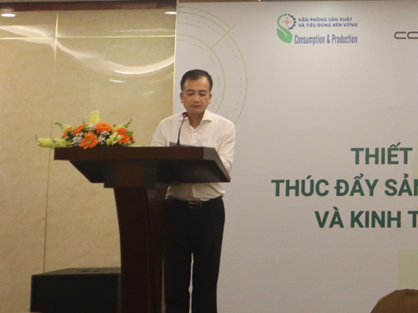
Mr. Trinh Quoc Vu, Deputy Director of the Department of Energy Saving and Sustainable Development
Mr. Patrick Haverman, Deputy Resident Representative of UNDP in Viet Nam, acknowledged the significance of eco-design as a potent tool in achieving a balance between sustainability, resource efficiency, and environmental consciousness. UNDP’s Circular Economy Programme has intensified support activities to advance the circular economy in Vietnam, spanning policy recommendations, innovation initiatives, capacity-building for businesses, and the promotion of circular cities.
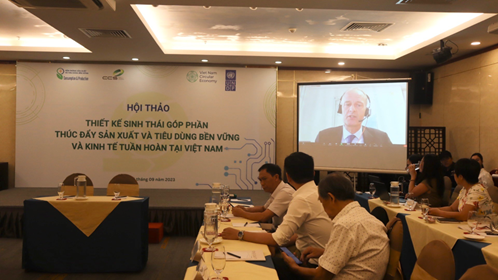
Mr. Patrick Haverman, Deputy Resident Representative of UNDP in Viet Nam
In reality, Vietnam is still in the nascent stages of eco-design implementation, owing to several objective and subjective factors, including a lack of policy tools, understanding, and capacity for deploying sustainable economic models. Currently, eco-design adoption primarily occurs within multinational corporations, large enterprises, and select organisations committed to sustainable development. This presents a notable challenge in propelling sustainability in production, consumption, and the circular economy in Vietnam.
The workshop featured insights and discussions from experts, business leaders, and industry associations on the potential, challenges, and applications of creative design to foster sustainable production and the circular economy in business operations (Link to conference documents).
This workshop represents a significant milestone in advancing sustainable development and the circular economy in Vietnam through the application of eco-design. It also fosters collaboration between government agencies, businesses, and international organisations.

